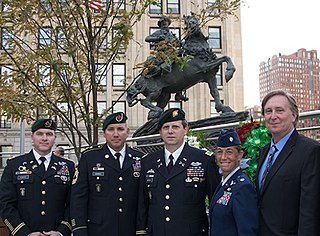A Quote by H. R. McMaster
It is clear that while our Army was engaged in Afghanistan and Iraq, Russia studied U.S. capabilities and vulnerabilities and embarked on an ambitious and largely successful modernization effort.
Related Quotes
One of the capabilities, which seems to be the most difficult for aspiring leaders to maste is realistic optimism. It requires one to recognize that our experience of life is largely up to us, that our situations, good or bad, are largely due to our ability on a moment-to-moment basis to capitalize on opportunity. Those that approach life as if it is largely outside of their own control, or that others are largely to blame for their circumstances, generally find growth elusive.
Afghanistan would have been difficult enough without Iraq. Iraq made it impossible. The argument that had we just focused on Afghanistan we'd now be okay is persuasive, but it omits the fact that we weren't supposed to get involved in nation-building in Afghanistan.In my new book, I open with a quote from Donald Rumsfeld. In October 2001, he said of Afghanistan: "It's not a quagmire." Ten years later there are 150,000 Western troops there.
Johnny Apple, a New York Times correspondent, wrote a front-page story saying Afghanistan could be a quagmire and he was mocked and derided. What is certainly true is that all sorts of resources that would have been used in Afghanistan were diverted to Iraq. Would those resources have helped? Almost undoubtedly. Whether or not Afghanistan would be a peaceful nation-state had we not gone into Iraq I doubt. Afghanistan is going to be Afghanistan, no matter how hard we try to make it something else.
Every time we have come to the end of a conflict, somehow we have persuaded ourselves that the nature of mankind and the nature of the world have changed on an enduring basis and so we have dismantle our military and intelligence capabilities. My hope is that as we wind down in Iraq and whatever the level of our commitment in Afghanistan, that we not forget the basic nature of humankind has not changed.
































